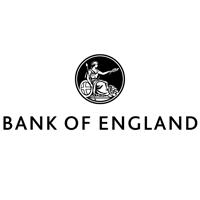The Bank of England’s Monetary Policy Committee (MPC) voted 8-1 to raise the Bank Rate by 50 basis points to 1.75%. This had been widely expected following a range of comments over the past couple of weeks and it is clear that the MPC is trying to keep a cap on inflation, although given the external influences that are driving higher energy prices globally, it is not clear how effective this will be. In his closing comments at the press conference, the Bank’s Governor said, “our job is to hit the inflation target” and “in the current circumstances to return inflation to target”. He went on to say, “to be clear, there are no ifs and buts in our commitment to the 2% inflation target” and he concluded by noting “that’s our job and that’s what we will do.”
The actions of the MPC are designed to bear down on second round effects that tend to be more domestic in nature and, in part at least, this includes the weakening of the exchange rate. This is being driven mainly by the strength of the US$ following the interest rate increase there – the Fed rate is currently in the 2¼% to 2½% range and is expected to go higher, perhaps as far as 4% by the end of the year. This attracts funds to the US and strengthens the US$ with the consequent weakening of other currencies, including Sterling. A weaker currency makes imported goods, including fuel and food, more expensive in UK currency terms, so this has the effect (hopefully) of improving the position of Sterling and limiting those exchange rate induced drivers of inflation.
Another issue that the MPC is grappling with is the increase in wholesale gas prices, mainly because of Russia’s restrictions on supply to Europe. Recent events mean that the forecasts of gas prices around the end of the year are still rising and this will, inevitably, have an impact on inflation. Indeed, in their new forecasts, as well as the headline grabbing expectations of a recession in the UK, the Bank now expects inflation to reach 13% in October when the next increase in the consumers energy price cap take effect.
In their outlook for GDP, the Bank’s forecasters (and many others) believe that the UK economy will have shrunk slightly in Q2-22 when the data is published next week, although it is widely anticipated that there will then be a return to growth in the 3rd quarter (which we are right in the middle of at the moment).
The headlines around a recession in the UK come from the prediction in the MPC report that output will then contract in each of the quarters from Q4-2022 to Q4-2023 (5 quarters). Furthermore, they don’t expect the economy to get back to its pre-recession level for at least 3 years (the forecast horizon). As an aside, the BBC website is reporting that the UK will “fall into recession this year” but technically, we won’t get the two consecutive falls in GDP until Q1-2023 (next year) although this does depend on how you measure a recession.
There is lots to unpick and we don’t have the space here to do that but one nugget that we found is a note that they think that business investment is being held back by both the supply chain disruptions and general economic uncertainty. Information from the Bank’s Agencies highlights that investment intentions had softened slightly but remained positive (Box C) and the forecast points to business investment rising modestly in Q2 and Q3 of this year.
The latest input from the Bank’s agents covers the six week period up to mid-July in which they note food retailers reporting a decline in sales values and volumes compared to a year ago, a slowdown in nominal sales of durable goods and lower inquiries and orders for new cars (including the cancellation of some existing orders). For manufacturing companies, output is still growing, but only at a modest pace with shortages of materials and components and a lack of staff. As mentioned above, investment intentions have remained positive as companies continue to spend to improve their IT and automation as well as on energy saving measures.
You can access the Monetary Policy Report on the Bank of England website at https://www.bankofengland.co.uk/monetary-policy-report/2022/august-2022 and if you scroll down to where the report starts, the side-bar with the subject-related menu is useful for finding your way through the document. There is also a link to download the whole thing as a pdf file if you are interested; the section on the Bank’s Agents Report begins on page 63 of this document.
The uncertain economic situation makes informed opinion a valuable commodity; in this context, we would remind members that the MTA Forecast Seminar is being held on 20th October – for more details see https://www.mta.org.uk/event/mta-forecast-seminar-2022.

